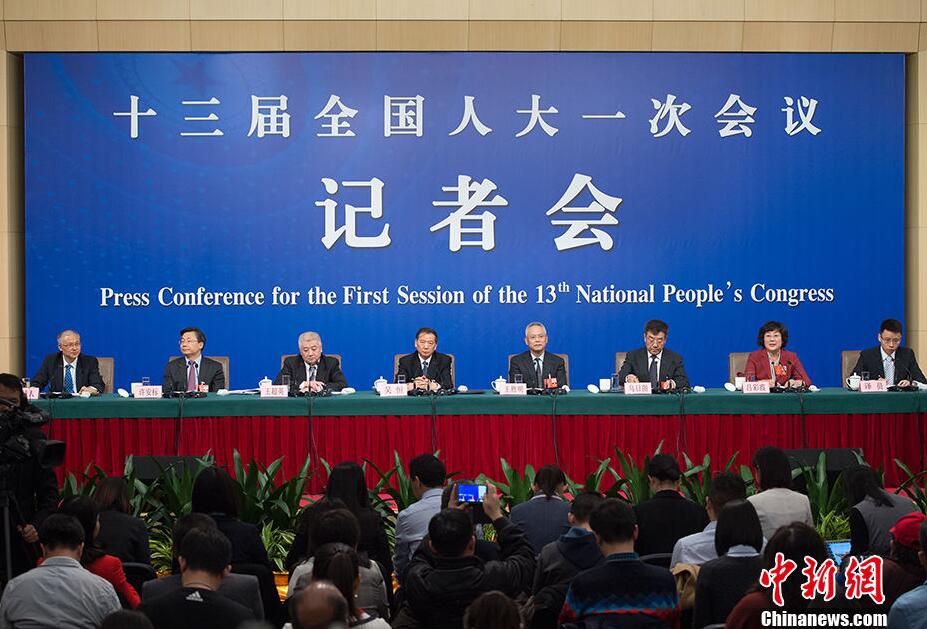
The five functional modules of the operating system are processor management, memory management, device management, file management and operation management. Processor management The most basic function of processor management is to process interrupt events. After configuring the operating system, various events can be processed.
The functions of the computer operating system include: processor management, memory management, device management, file management, job management and other functional modules. Processor management. The most basic function of processor management is to handle interrupt events. The processor can only detect interrupt events and generate interrupts and cannot process them.
Storage management is divided into several functions: storage allocation, storage sharing, storage protection, and storage expansion.Equipment management has the following functions: equipment allocation, equipment transmission control, and equipment independence. File management: file storage space management, directory management, file operation management, file protection.
The operating system should usually include the following five functional modules: (1) Processor management. When multiple programs are running at the same time, solve the problem of processor (cpu) time allocation. ( 2) Operation management. The program to complete an independent task and its required data constitute a task.
The function of the operating system is mainly reflected in the management of computer resources - microprocessors, memory, external devices, files and tasks. The operating system sets this management function into the corresponding program management module, and each management module is responsible for a certain function.That is, the five functions of the operating system.
The operating system has five functions: processor management: mainly controls and manages the work of the CPU. Storage management: mainly carry out memory allocation and management device management: mainly manage basic input and output device file management: responsible for the organization, storage, operation and protection of computer files, etc.

There are the following types of management systems: the management system of the finished product set. This kind of system is a stereotyped management system, which makes a small number of functional adjustments to the software through the parameter settings of the software.
Transaction Processing System (TPS): Operators and supervisors are used to input transactions, events, sort, list, merge updates, output detailed reports, lists and summaries, etc. Management Information System (MIS): Middle managers are used to input general transaction data and simple models to process routine reports.
Adgecal management system Academic management system is one of the most core management systems of the school, which is responsible for arranging and managing the school's teaching activities. It includes curriculum setting, teaching plan, teacher arrangement, examination management and other contents.
VMware vSphere: It is a virtualization management platform that can be used to manage virtual machines, storage and networks, etc. Nagios: It is an open source network monitoring system that can be used to monitor network devices, servers and applications, etc.
Financial subsystem: providing the function of financial management information; Decision support subsystem: make the logistics information system reach a higher level.
ERP management system brand Youyou, Jindie International Software, Wave Software, Dingjie Software, Zhenghang Software. Use friends.
1. System management refers to the information technology system that manages enterprises, and file management is one of the five major functions of the operating system.First, network management refers to the centralized management of resources on the network by network administrators through network management programs.
2. System Management regards organizational components as interrelated and interdependent systems, so it advocates applying the system concept to the management concept.
3. System management refers to the process of maintaining, managing and monitoring computer systems. As an important part of enterprise informatization construction, the importance of computer system management cannot be ignored.
LR stock price Philippines-APP, download it now, new users will receive a novice gift pack.
The five functional modules of the operating system are processor management, memory management, device management, file management and operation management. Processor management The most basic function of processor management is to process interrupt events. After configuring the operating system, various events can be processed.
The functions of the computer operating system include: processor management, memory management, device management, file management, job management and other functional modules. Processor management. The most basic function of processor management is to handle interrupt events. The processor can only detect interrupt events and generate interrupts and cannot process them.
Storage management is divided into several functions: storage allocation, storage sharing, storage protection, and storage expansion.Equipment management has the following functions: equipment allocation, equipment transmission control, and equipment independence. File management: file storage space management, directory management, file operation management, file protection.
The operating system should usually include the following five functional modules: (1) Processor management. When multiple programs are running at the same time, solve the problem of processor (cpu) time allocation. ( 2) Operation management. The program to complete an independent task and its required data constitute a task.
The function of the operating system is mainly reflected in the management of computer resources - microprocessors, memory, external devices, files and tasks. The operating system sets this management function into the corresponding program management module, and each management module is responsible for a certain function.That is, the five functions of the operating system.
The operating system has five functions: processor management: mainly controls and manages the work of the CPU. Storage management: mainly carry out memory allocation and management device management: mainly manage basic input and output device file management: responsible for the organization, storage, operation and protection of computer files, etc.

There are the following types of management systems: the management system of the finished product set. This kind of system is a stereotyped management system, which makes a small number of functional adjustments to the software through the parameter settings of the software.
Transaction Processing System (TPS): Operators and supervisors are used to input transactions, events, sort, list, merge updates, output detailed reports, lists and summaries, etc. Management Information System (MIS): Middle managers are used to input general transaction data and simple models to process routine reports.
Adgecal management system Academic management system is one of the most core management systems of the school, which is responsible for arranging and managing the school's teaching activities. It includes curriculum setting, teaching plan, teacher arrangement, examination management and other contents.
VMware vSphere: It is a virtualization management platform that can be used to manage virtual machines, storage and networks, etc. Nagios: It is an open source network monitoring system that can be used to monitor network devices, servers and applications, etc.
Financial subsystem: providing the function of financial management information; Decision support subsystem: make the logistics information system reach a higher level.
ERP management system brand Youyou, Jindie International Software, Wave Software, Dingjie Software, Zhenghang Software. Use friends.
1. System management refers to the information technology system that manages enterprises, and file management is one of the five major functions of the operating system.First, network management refers to the centralized management of resources on the network by network administrators through network management programs.
2. System Management regards organizational components as interrelated and interdependent systems, so it advocates applying the system concept to the management concept.
3. System management refers to the process of maintaining, managing and monitoring computer systems. As an important part of enterprise informatization construction, the importance of computer system management cannot be ignored.
Hearthstone arena deck Builder
author: 2025-01-10 04:47100 free bonus casino no deposit GCash
author: 2025-01-10 02:48 Hearthstone Wild Decks
Hearthstone Wild Decks
281.58MB
Check UEFA EURO
UEFA EURO
891.44MB
Check Casino redeem
Casino redeem
757.79MB
Check DigiPlus Philippine
DigiPlus Philippine
495.78MB
Check LR stock price Philippines
LR stock price Philippines
199.29MB
Check Arena Plus login
Arena Plus login
266.25MB
Check DigiPlus fair value
DigiPlus fair value
828.43MB
Check Hearthstone Wild Decks
Hearthstone Wild Decks
137.73MB
Check Free sports events uefa champions league app android
Free sports events uefa champions league app android
294.67MB
Check Europa League app
Europa League app
936.31MB
Check DigiPlus fair value
DigiPlus fair value
787.43MB
Check Hearthstone Arena win rate
Hearthstone Arena win rate
384.51MB
Check Arena plus APK
Arena plus APK
697.99MB
Check App to watch Champions League live free
App to watch Champions League live free
316.19MB
Check LR stock price Philippines
LR stock price Philippines
747.28MB
Check Walletinvestor digi plus
Walletinvestor digi plus
344.73MB
Check Casino Plus login register
Casino Plus login register
132.39MB
Check UEFA Champions League live
UEFA Champions League live
753.74MB
Check Casino free 100 no deposit
Casino free 100 no deposit
892.73MB
Check Casino Plus login register
Casino Plus login register
251.46MB
Check Hearthstone arena
Hearthstone arena
296.57MB
Check Arena Plus login
Arena Plus login
295.55MB
Check UEFA Champions League live streaming free
UEFA Champions League live streaming free
818.24MB
Check UEFA live free
UEFA live free
699.46MB
Check Bingo Plus stock
Bingo Plus stock
212.53MB
Check PAGCOR online casino free 100
PAGCOR online casino free 100
325.52MB
Check UEFA TV
UEFA TV
769.87MB
Check Casino Plus free 100
Casino Plus free 100
291.52MB
Check Hearthstone deck
Hearthstone deck
133.19MB
Check PAGCOR online casino free 100
PAGCOR online casino free 100
739.45MB
Check DigiPlus
DigiPlus
894.83MB
Check European Cup live
European Cup live
423.34MB
Check Casino free 100 no deposit
Casino free 100 no deposit
123.18MB
Check Arena Plus login
Arena Plus login
494.52MB
Check DigiPlus fair value
DigiPlus fair value
415.27MB
Check Hearthstone arena deck Builder
Hearthstone arena deck Builder
778.73MB
Check
Scan to install
LR stock price Philippines to discover more
Netizen comments More
2157 Hearthstone Arena Tier List
2025-01-10 04:22 recommend
1015 Hearthstone arena deck Builder
2025-01-10 04:08 recommend
173 UEFA Champions League
2025-01-10 03:23 recommend
735 Hearthstone arena
2025-01-10 02:42 recommend
2282 UEFA Champions League standings
2025-01-10 02:32 recommend